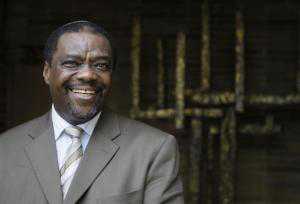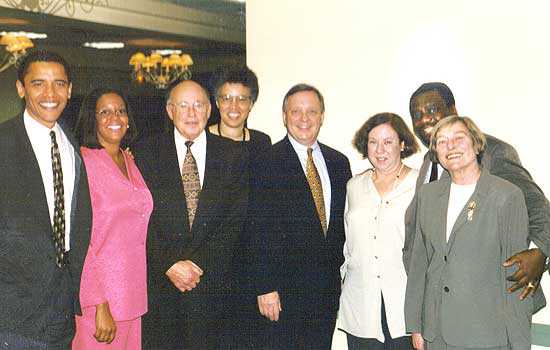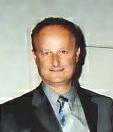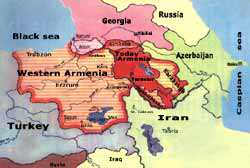
ANCA CAPITOL HILL ARMENIAN GENOCIDE REMEMBRANCE
DRAWS 40 MEMBERS OF CONGRESS
“It is long past the time for the United States to formally recognize the Armenian Genocide.”
-Speaker Nancy Pelosi WASHINGTON-On April 23, dozens of Democratic and Republican Members of Congress joined with over 500 Armenian Americans from across the United States in Capitol Hill’s historic Cannon Caucus Room in a solemn remembrance devoted to U.S. recognition of the Armenian Genocide, reported the Armenian National Committee of America (ANCA). Speaker of the House Nancy Pelosi (D-Calif.) and House Majority Leader Steny Hoyer (D-Md.), in their remarks to the standing-room only audience, both spoke forcefully of their personal commitment to proper U.S. condemnation and commemoration of the Armenian Genocide. “It is long past the time for the United States to formally recognize the Armenian Genocide,” noted Speaker Pelosi in her remarks. She went on to spotlight the importance of grassroots efforts against Turkey’s multi-million dollar campaign of genocide denial. “How far we can go with the resolution [H.Res.252] this year depends on the outreach that each and everyone of us in this room can do to win on the floor of the House. We can do any amount of inside maneuvering in the Congress and Washington, but what is important is the outside mobilization to bring to bear the voices of people across America.” The Congressional Armenian Genocide observance was organized by the Congressional Armenian Caucus, with Caucus co-chairs Rep. Frank Pallone (D-N.J.) and Rep. Mark Kirk (R-Ill.) serving as masters of ceremony. Opening prayers were offered by his Eminence Oshagan Choloyan, Prelate of the Armenian Apostolic Church of the Eastern United States as well as Archbishop Vicken Aykazian, Legate of the Diocese of the Armenian Apostolic Church of Eastern United States. Joining Speaker Pelosi and Majority Leader Hoyer in offering remarks at the commemoration were Armenian Genocide Resolution lead sponsors Rep. Adam Schiff (D-Calif.) and Rep. George Radanovich (R-Calif.), House Members of Armenian descent Anna Eshoo (D-Calif.) and Jackie Speier (D-Calif.), as well as Reps. Thaddeus McCotter (R-Mich.), Jim McGovern (D-Mass.), Rep. Brad Sherman (D-Calif.), Dina Titus (D-Nev.), and Tim Walz (D-Minn.). Members in attendance at the Observance also included Sen. Jack Reed (D-R.I.), and Reps. Jim Costa (D-Calif.), David Dreier (R-Calif.), Bob Filner (D-Calif.), Rush Holt (D-N.J.), Carolyn Maloney (D-N.Y.), James Langevin (D-R.I.), Richard Neal (D-Mass.), Gary Peters (D-Mich.), Ed Royce (R-Calif.), and Diane Watson (D-Calif.). The evening included powerful remarks about the consequences of genocide by guest speaker Dr. Henry Theriault of Worcester State University. Also offering remarks were Armenian Ambasador Tatul Markarian and Permanent Representative of the Nagorno-Karabagh Republic to the U.S. Robert Avetisyan. Video coverage of key remarks at the Armenian Genocide observance will be posted to the ANCA Website at www.anca.org. The Armenian Genocide Resolution, introduced earlier this year by Reps. Schiff and Radanovich and Congressional Armenian Caucus co-chairs Frank Pallone (D-N.J.) and Mark Kirk (R-Ill.), calls on the U.S. president to properly recognize the Armenian Genocide. It currently has over 100 co-sponsors and has been referred to the Foreign Affairs Committee, chaired by Rep. Howard Berman (D-Calif.). President Obama, as a Senator and a candidate for the presidency, spoke forcefully, clearly, and repeatedly in support of U.S. recognition of the Armenian Genocide, frequently criticizing then-President Bush for failing to properly characterize and commemorate this crime while in the White House. He is expected to offer his first April 24th statement, a White House tradition, this Friday. Among President Obama’s past statements have been the following:
– “The Armenian Genocide is not an allegation, a personal opinion, or a point of view, but rather a widely documented fact supported by an overwhelming body of historical evidence. The facts are undeniable.”
– “America deserves a leader who speaks truthfully about the Armenian Genocide and responds forcefully to all genocides. I intend to be that president.”
– “As a senator, I strongly support passage of the Armenian Genocide Resolution (H.Res.106 and S.Res.106), and as president I will recognize the Armenian Genocide.”
Members of Congress Honor Victims of the Armenian Genocide; Call for Proper U.S. Recognition of this Crime Against Humanity
Sen. Paul Sarbanes (D-MD): “I come every year because I think that the issue you place on the national and international agenda is of great importance. . . If there should be any question raised about the occurrence of this genocide, it is beyond my understanding. . . If other nations can speak the truth then our nation must speak the truth on this issue. . . The Senate [Armenian Genocide] resolution has my strongest support.”
Sen. Robert Menendez (D-NJ): “There are those who argue that Turkey is an ally, and maybe it is. But, at the end of the day, even an ally should permit us to have our own policy to recognize what history says happened—that 1.5 million Armenians perished. That should be the reality we take as a position for the country. When Hitler asked “who remembers the Armenians?” I answer that we remember the Armenians, the next generation of the Armenians, and all of us who believe in human rights. And this country remembers the Armenians, and that is why we are here today.”
Sen. Frank Lautenberg (D-NJ): “We have to remember that genocide was originally discovered in those years [1915-1923]. . . and make sure to support legislation to recognize the Genocide, making sure that it is known as an Armenian event and do everything we can to get it passed.”
Rep. David Dreier (R-CA): “We are strongly committed to doing everything we can to making sure there is clear recognition of the Armenian Genocide – and that is exactly what I’ve said to two Turkish Prime Ministers.”
Rep. Frank Pallone (D-NJ): “It is so important for you to be here and to show up. The only way a message is going to be sent is if more and more people come out and show up. . . The effort to deny the Genocide continues and that’s why it’s so important to be out there in large numbers to counter their actions.”
Rep. Adam Schiff (D-CA): “I long for the day when we not only come to commemorate the Genocide, but to celebrate the passage of Genocide resolutions. . . Let’s not let any of our Armenian parents, grandparents, aunts, and uncles down. . . let’s recognize the Armenian Genocide now!”
Rep. George Radanovich (R-CA): “It’s particularly exasperating this year – we have a bill out of committee ready to go to the floor, yet we are finding it difficult to move it further and I think after 12 years I wonder and I tire but I know you have been waiting 91 years and it gives me hope we will soon be recognizing the Genocide. Keep working and have faith and America will recognize it.”
Rep. John Sweeney (R-NY): “Without a full acceptance, we have denial, and with denial we perpetuate terrible episodes in history, threatening humanity and mankind, and impede on the march of freedom and liberty. I don’t intend on allowing that to happen! I pledge and vow to you as one of your own to keep the fight up and keep on working hard.”
Rep. Rush Holt (D-NJ): “The truth has curative power and reconciliation powers and we thank you for that effort of getting the truth out.”
Rep. Mark Kirk (R-IL): “When we learn the lesson of the Armenian Genocide, we say ‘never again,’ which is very easy to say in a speech in Washington. But I’ve been there [as a U.S. soldier serving in Bosnia] when we’ve meant ‘never again,’ where we took action as the only superpower on the planet to stop a crime. So now when we look at what’s happening today, we have a powerful moral lesson that we have learned from the people of Armenia — the one that we have to carry into the classrooms and television sets.”
Rep. James Langevin (D-RI): “If we do not recognize the Armenian Genocide it will happen again and again and again.”
Rep. Joe Schwarz (R-MI): “I am a student of history and have been interested in Armenian history for many years. One of the goals for Congress and for American foreign policy should be a strong and independent Armenia within the community of the Transcaucasus. We should not let the Azeris, the Georgians, the Russians, the Turks impinge on the bright and prosperous future of Armenia. . . The United States must recognize the Armenian genocide so that we can get on with the healing.”
Rep. John Larson (D-CT): “I’m often amazed at the ceremonies and annual pilgrimages people make on behalf of their beliefs and their cause. And for those that seek to remember or understand Armenia all you have to do is look around this room it’s written on your faces, it’s carried in your hearts.”
Rep. Carolyn Maloney (D-NY): “It is time for the American government to officially recognize what happened 91 years ago and join the other countries of the world with official recognition . . . We must always stand up and speak the truth to counter any denial.”
Rep. Barney Frank (D-MA): “It is extraordinary given what the Armenian people were subjected to, given the fight that still goes on, given the unfair obstacles still put in the way of Armenia, given the importance of reminding the world of this genocide, that you have compassion, wisdom, and commitment to universal values that lead you to your efforts for stopping the atrocities taking place in Darfur.”
Rep. Dan Lipinski (D-IL): “If you look at all the members who have spoken here and those who are still waiting to speak this is a very unique situation. On any other day these Members may have nothing in common, but this is what happens when you come together for truth. . . You have done a great job in bringing this to everyone’s attention in this country and I commend you and urge you to keep it up.”
Rep. Edward Markey (D-MA): “It’s time for President Bush to adhere to his campaign promise and tear down that wall of denial and recognize and honor the Armenian Genocide.”
Rep. Thaddeus McCotter (R-MI): “We must pierce the myth of this indispensable relationship [between the U.S. and Turkey]. . . No relations can be built upon a lie. . . If we are going to have friends and allies in the world that the United states can depend on, there must be honesty both within our relationship and in the United States itself.”
Rep. Donald Payne (D-NJ): “What is going on now – because your movement is getting stronger, your voices are getting louder, your issues are being heard – there is a disinformation, it’s always been there but now it’s more organized. . . So now we have to keep the pressure on keep the fight on. Genocide anywhere is wrong.”
Rep. Steve Rothman (D-NJ): “What is the harm in denying the truth? Is there any harm in denying the truth? As human beings we know that this does cause a physical destruction to the body when one denies the truth. Just as I believe that applies to individuals, I believe that it applies to countries and humanity. And so when the world denied the Armenian Genocide and continues to deny it, not only did that lead to the Holocaust but it has contributed to the atmosphere in which the world has witnessed the deaths of 400,000 in Darfur. You notice that there are some similarities in the way the Ottoman Empire persecuted the Armenian population and what is going on in Darfur — the forced exile, the systematic deprivation of food and water, and murder through starvation. . . Denying the truth about genocide is really a second killing, a double genocide. We as Americans cannot stand by when the truth continues to be denied.”
Rep. Sue Kelly (R-NY): “It makes no sense that we cannot officially recognize the genocide, acknowledge it, ask for an apology and go beyond the issue, allowing the whole region to move together. This cannot happen unless there is an apology!”
Rep. Brad Sherman (D-CA): “When will Turkey be part of the modern world if it does not recognize the past? Where would Germany be if it denied the Holocaust? Where would America be if we said slavery didn’t exist and the native America tribes just drifted away peacefully. Every country needs to recognizes its past in order to move forward to the future. And that is why I have co-sponsored every resolution in the last ten years in the House of Representatives to recognize the first genocide of the last century. But we have seen it again and again. Our International Relations committee passes the resolution – we reformulate the resolution and get it through the Judiciary committee instead. We move that bill through that Committee and then the House leadership won’t let it come up to a vote. It’s time to raise our voices to even higher levels and say its time for this to come up for a vote. Why is the Congress hiding from its responsibilities?”
Rep. John Tierney (D-MA): “ All of you do us a great service in reminding us the issues that are important to the Armenian community and for us to attend to those issues. Truth about what happened 91-years ago and the fairness of the issues for which you fight are things we need to continually remember. The truth is that it was ‘Genocide.’ We have to end man’s inhumanity to man, and we can only do that by acknowledging what has happened in the past, and swearing that we should never remain silent as it happens now in Darfur.”
Rep. Mark Souder (R-IN): “I commend you for your efforts to keep this alive and I hope you get a hard vote.”
Rep. Chris Van Hollen (D-MD): “The lesson of the Armenian Genocide is that evil things are not just done by the bad people who perpetuate the crimes, but in a way are allowed to happen by the good people who are not taking the necessary action. The failure of the United States Congress to pass an Armenian Genocide Resolution sends exactly the wrong signal to people around the world about accountability. We have to send the signal that we are going to hold people accountable and the failure to do that has been a stain on the conscious of Congress and the United States.”
Rep. Curt Weldon (R-PA): “I understand it is a responsibility of mine in Congress to stand for your people and for the plight of your nation. . . . I told the President of Azerbaijan that we wanted to be friends with Azerbaijan but that we will not do it at the expense of Armenia and the Armenian community. We want the dignity of Armenia to shine strong in the Caspian region. You have our support and bipartisan support by members of Congress to make sure we never forget the terrible atrocities that occurred 91 years ago and that we never forget the plight of the Armenian people.”
Rep. Mike Honda (D-CA): “A country is only as great as its ability to recognize its past, recognize its mistakes, apologize and move on. The Diaspora isn’t looking for blood and vengeance, I believe you are looking for reconciliation and recognition so that we can all move forward in this world to insure that future acts of genocide shall cease.”
Rep. Diane Watson (D-CA): “I come to support you and join with my colleagues in saying that California already has a resolution supporting the Genocide of the Armenians, so we are already ahead of the game. And we want it to spread across this nation, all 50 states, that they then will correct the people out there that would like to deny. Let them know that history speaks for itself, and that the genocide is real. . . .We are going to try to convince our colleagues, regardless of the Turkish influence that appears in these halls, and win out in the end.”



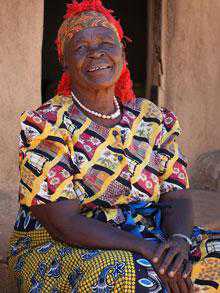 […] Barack Obama was born in 1961, the son of a Kenyan father and American mother who had met at a university in Hawaii.
[…] Barack Obama was born in 1961, the son of a Kenyan father and American mother who had met at a university in Hawaii.

